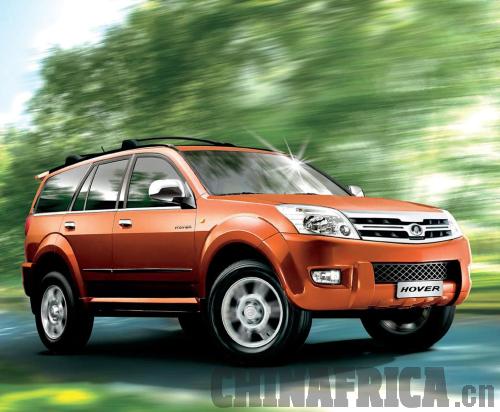| 
When Li Yachao first heard the news that his company had been awarded a 1,000 sedan order for Algerian taxis ahead of renowned brands like Renault and Dacia, he was understandably optimistic about future trade with Africa.
"The performance-price ratio of our products is high, so our brand is welcomed by African people," Li, a sales manager of Great Wall Motor, told ChinAfrica.
The company's success in the small car market is a recent achievement as they are generally associated in Africa with SUVs (sport utility vehicles) and pick-ups. Based in Baoding City, north China's Hebei Province, Great Wall Motor, the first Chinese private whole vehicle maker listed on the Hong Kong Stock Exchange, is becoming one of China's largest private transnational corporations. It was just 21 years ago that the company was only an auto-refitting plant.
Now, with 28 subsidiaries and 42,000 employees, the Chinese auto giant exports its products to more than 100 countries worldwide.
Eyes on Africa
With less trading hurdles and a huge market, Africa is a prime target for Chinese car companies, like Great Wall Motor. "Due to poor infrastructure facilities and weak purchasing power, Africans prefer our product because of its relative low price but good performance," said Li.
Since entering the African market in 2002, Great Wall Motor has seen a growth of its vehicle sales in South Africa, Algeria, Senegal and Mauritius. From January to August this year, it had sold about 9,000 vehicles on the continent, up 14 percent over the same period last year, making up 20 percent of the company's total exports.
Previously, Africans bought used cars exported from European countries due to their lower price. Great Wall's vehicles now provide another option. "Why would you want used when you can buy new for cheaper?" asked Pape Seck, a Senegalese who bought two four-wheel-drive black Hover II SUVs for his construction company.
Li said Great Wall vehicles are used as airport shuttle buses in South Africa, police cars in Cote d'Ivoire and as taxis in Algeria.
Locally made
The need to localize production for long-term growth is something Great Wall Motor is very aware of. "Making our business local is a good choice to gain a long-term foothold in Africa," Liu Jinghui, a manager who is responsible for overseas KD (knock down kit) assembly plants, told ChinAfrica.
Currently, among Great Wall Motor's 12 overseas KD assembly plants, four are located in African countries - Egypt, Senegal, Ethiopia and Sudan. Plans are also in place to establish plants in South Africa.
Insiders say establishing overseas KD assembly plants will reduce the import duties levied on domestic carmakers, helping them to enjoy local preferential policies and facilitate their access into the local market.
"Local governments will consider the companies who have local operations as priorities when they are going to purchase vehicles," Liu said.
The move would also help to stimulate the African auto industry and provide jobs to locals, said Liu.
To date, Great Wall Motor's plant in Senegal has employed about 60 local people, with an annual output of 2,000 vehicles. The Egypt plant has more than 100 local workers producing 5,000 vehicles each year. "The number seems to be insignificant. However, we provide them (locals) with skills," Liu said. He further explained that belonging to an emerging industry, auto KD assembly plants attract many local people as working here means better salary and more opportunities in the future.
|